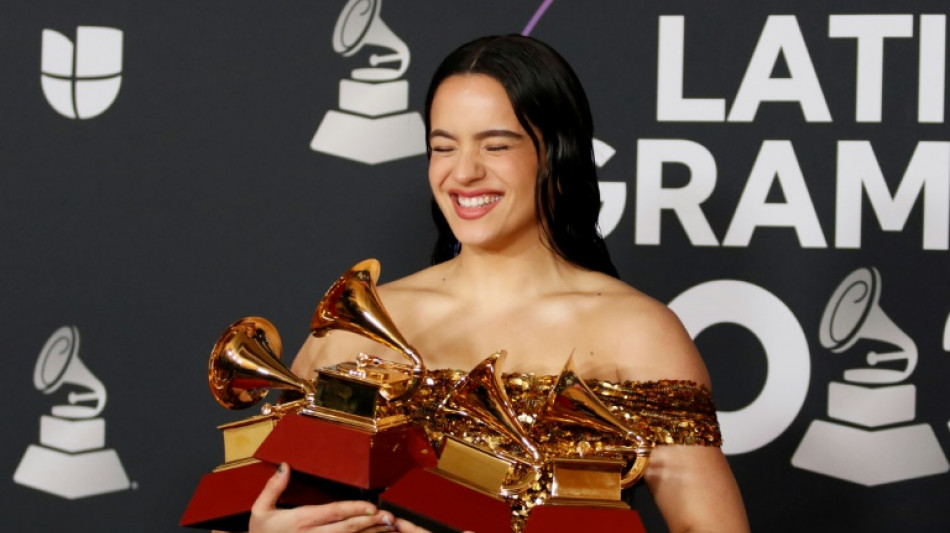
From flamenco to pop: 5 things about singer Rosalia

Rosalia, the former flamenco prodigy who has since cemented her place at the top of the pop world, was arguably the biggest breakout star of 2022.
As the 30-year-old ends her world tour in Paris on Sunday, here are five things to know about Rosalia.
- Flamenco roots -
Growing up on the outskirts of Barcelona, Rosalia Vila Tobella studied at the Catalonia College of Music, which accepts only one student per year into its flamenco programme.
This was the sound of her first album, 2017's stripped-back "Los Angeles", featuring Rosalia singing alone with a guitar.
It won many admirers for its new approach to a beloved genre -- as well as some conservative detractors -- but few predicted the crossover success to come.
- Crossover -
While studying flamenco, Rosalia was listening to reggaeton with her friends and David Bowie with her mother.
The pop influences crept into her second album, "El Mal Querer" (The Bad Love), which included a reworking of Justin Timberlake's "Cry Me a River".
"You can sense the flamenco tradition, but it's a whole new thing," she said at the time.
It was a sensation, winning a Latin Grammy for album of the year, and the lead song "Malamente" racked up 160 million views on YouTube.
The album tracks a toxic relationship, but also makes references as varied as poet Federico Garcia Lorca (killed during Spain's civil war), flamenco legend Camaron de la Isla and a famous sex club in Barcelona.
- Collaborations -
The collision of sounds won her an eclectic set of celebrity fans, from brash rap stars like Cardi B and pop stars like Lorde to elder statesmen of indie rock like Michael Stipe and David Byrne.
Rosalia embraced the opportunities, collaborating with some of the biggest names in reggaeton and hip-hop, including Ozuna, J Balvin and The Weeknd.
Her duet with Travis Scott on "TKN" was a huge crossover hit with 218 million views on YouTube.
- Reinvention -
Rosalia took another bold step with "Motomami", released in March, delving further into contemporary urban and electro.
It has catapulted her to the very top of the music game, becoming the first album by a Spanish woman artist to reach one billion streams on Spotify, and again winning album of the year at the Latin Grammys.
Its central image of the butterfly was a nod to her own transformations.
"I'm constantly seeing this phenomenon I keep being surprised by, of women and their talent in these predetermined categories: the sexy one, the crazy one, the bossy one, the diva," she told Rolling Stone.
"But those categories don't lead anywhere, they’re just limiting."
- Image -
Rosalia has always taken extreme care over her style, which is managed by her sister Pili.
Her videos often have strong Spanish influences, from bullfighting with a motorbike in the clip for "Malamente" to the visuals for "Di Mi Nombre" which drew inspiration from 18th-century painter Goya.
The bold colours of filmmaker Pedro Almodovar have been another frequent touchstone, and she made an appearance in his last feature "Pain and Glory" in 2019.
M. Tschebyachkinchoy--BTZ

 London
London

 Manchester
Manchester
 Glasgow
Glasgow
 Dublin
Dublin
 Belfast
Belfast
 Washington
Washington
 Denver
Denver
 Atlanta
Atlanta
 Dallas
Dallas
 Houston Texas
Houston Texas
 New Orleans
New Orleans
 El Paso
El Paso
 Phoenix
Phoenix
 Los Angeles
Los Angeles



